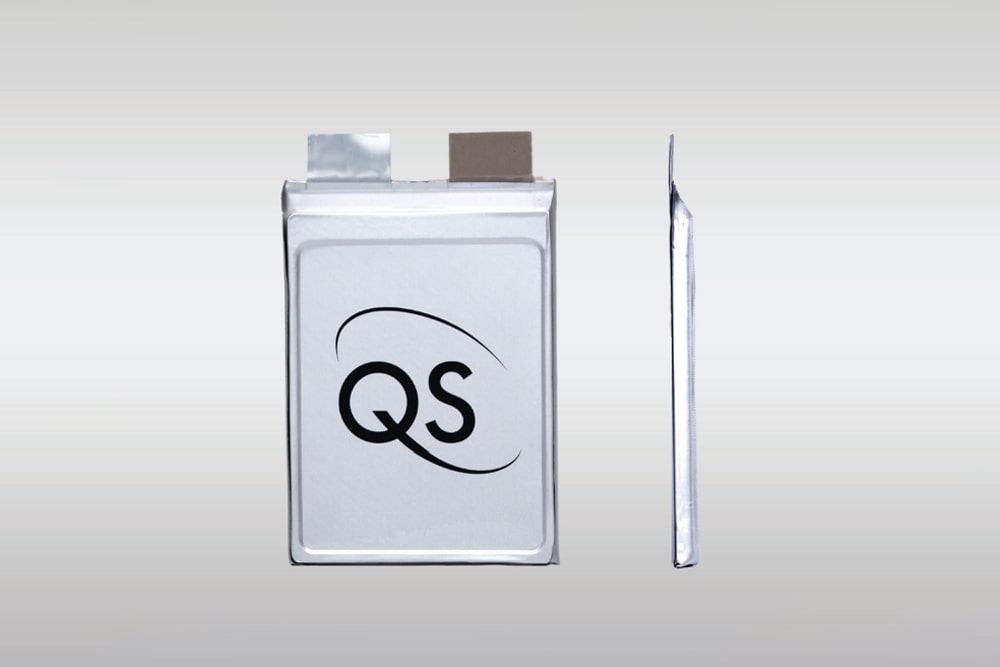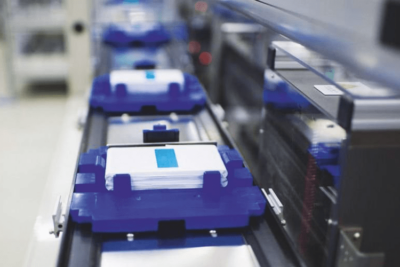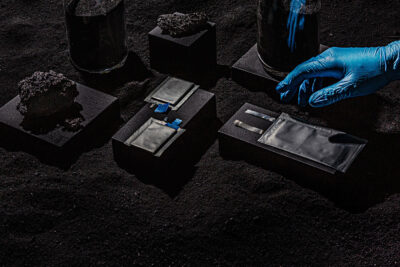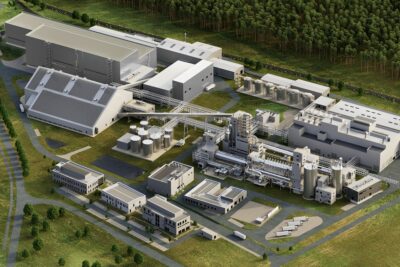PowerCo certifies QuantumScape’s “encouraging results” for solid-state cells
The US company QuantumScape recently reached a milestone that has now been confirmed by Volkswagen’s battery subsidiary PowerCo: Its solid-state cell completed more than 1,000 charging cycles in the A sample test. “For an electric car with a WLTP range of 500-600 kilometres, this corresponds to a total mileage of more than half a million kilometres,” PowerCo points out. At the same time, the cell hardly aged at all and still had 95 per cent of its capacity at the end of the test.
According to Volkswagen, robustness is the most important criterion in the standardised test procedures for newly developed battery cells. “The industry-standard targets for this development phase are 700 charging cycles and a maximum capacity loss of 20 per cent. QuantumScape’s solid-state cell
significantly exceeded these specifications in the latest test.” According to the Wolfsburg-based company, the cell was also able to fulfil the requirements for other test criteria such as fast-charging capability, safety and self-discharge.
The tests, which lasted several months, were carried out in PowerCo’s battery laboratories in Salzgitter. As the Volkswagen subsidiary explains, the solid-state cell tested consists of 24 layers and, therefore, already corresponds to the planned series cell. The next step on the way to series production is now to perfect and scale up the manufacturing processes. However, PowerCo is already emphasising that the unit cell developed in-house is “fundamentally also suitable for use with solid-state cell technology”.
The Volkswagen Group has been involved with QuantumScape since 2012 and is one of the main investors in the technology start-up. Following his own laboratory tests, PowerCo CEO Frank Blome speaks of very encouraging results that impressively underline the potential of the solid-state cell. “The final result of this development could be a battery cell that enables long ranges, can be charged super-quickly and practically does not age. We are convinced of the solid-state cell and are continuing to work at full speed with our partner QuantumScape towards series production.”
QuantumScape first reported the results of the A-sample tests in October 2023 as part of its quarterly report – and mentioned that they had been carried out in the battery test laboratories of a potential customer under standard conditions. It is very likely that this was Volkswagen.
Jagdeep Singh, Founder & CEO of QuantumScape, is quoted in the current Volkswagen press release as follows: “These results from the Volkswagen Group’s PowerCo testing make clear that QuantumScape’s anodeless
solid-state lithium-metal cells are capable of exceptional performance. While we have more work to do to bring this technology to market, we are not aware of any other automotive-format lithium metal battery that has shown such high discharge energy retention over a comparable cycle count under similar conditions. We’re excited to be working closely with the Volkswagen Group and
PowerCo to industrialize this technology and bring it to market as quickly as possible.”
To put this in context, QuantumScape is aiming for a battery cell with the designation QSE-5 and a charging capacity of around 5 Ah as its first commercial product. This should offer an energy density of over 800 Wh/L and be able to be charged from ten to 80 per cent in around 15 minutes. The solid-state battery specialist made this public in the summer of 2023.
At the end of 2022, QuantumScape had already delivered the first prototypes (A0 prototype cell) of its solid-state cells with 24 layers to car manufacturers for testing, but is continuing to develop the cell in parallel. The core of this further developed cell is a new cathode that accommodates more active cathode material on the same surface area. QuantumScape recently trialled this material in two-layer cells, but has not yet introduced the new material into the 24-layer cells.
Specifically, as mentioned above, the new material should enable a charge of 5 mAh per square centimetre. This is more than QuantumScape’s previous cathodes (3.1 mAh/cm2) and also an improvement on “the cathodes used in commercial cells such as the 2170 battery cell (~4.3 mAh/cm2) that power some of today’s best-selling electric vehicles”, as stated in a press release in the summer of 2023 – a clear reference to the Tesla Model Y.
In October, however, the company qualified the latest test results by stating that they were only from the most powerful cell in the test portfolio and that work still needed to be done on aspects such as reliability. Nevertheless, the developers believe that the results are particularly significant “as the A0 prototype cell, like the QSE-5 cell intended for production, has 24 layers and features QuantumScape’s proprietary cell format”. There are differences in the aforementioned cathode innovation and the housing, among other things.
QuantumScape dampened expectations by stating that scaling must be considered from the outset. Literally: “Producing these cells in large quantities with high quality and reliability is associated with considerable challenges.”





2 Comments